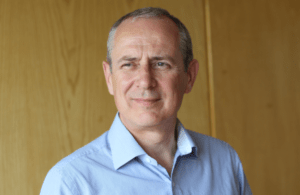Nigel Bridges tells us after spending so much time producing client reports he co-founded Beacon to provide better researched automatically generated data.
What do you currently do at Beacon?
I am the Co-Founder and CEO of Beacon. Our aim is to help our clients analyse and improve their digital marketing campaigns based on transparent and verifiably true data. Underpinning this is our software product, Beacon.
Beacon is our innovative digital marketing analytics and optimisation platform that empowers users to take back control of their digital spend by using accurate, independent and unbiased data so that they can continually refine and improve their digital marketing ROI.
What was the inspiration behind your business?
The inspiration behind Beacon came from two reoccurring issues.
The first was that at the end of every month, our team spent a substantial amount of time producing reports for clients to show results and justify spend.
Secondly, we became increasingly aware that the data provided by platforms (Google, Twitter, Facebook, etc) wasn’t always accurate, clear or easy to act upon. We wanted an unbiased and independent view into what was really happening: were our clicks really all human, or were some bots being counted as humans, for example?
Underpinned by a desire for honesty and data transparency, we set to work looking for an existing analytics tool that was easy to use, would provide accurate and independent data, would show the divide between human and bot clicks and would deliver quick and reliable reports to enable us to make informed decisions about digital marketing spend.
After extensive research, we found such a platform didn’t appear to exist and, as result, Beacon was born. 4 years later, Beacon has gone from strength to strength and enables users to optimise budget, increase efficiencies, mitigate against click fraud and consistently improve their digital ROI.
Who do you admire?
There are far too many people to name. I have met and worked with a whole host of impressive individuals during my business life, whom I continue to learn from and who have provided excellent advice from a place of hard-won experience.
I have found the experienced leaders who have and do run excellent businesses are the ones you can learn from most. Those that have worked hard, persisted and grown successful enterprises are the ones that should be taken notice of. It’s important to run a business with a strong purpose that looks to make positive change as well as a good return, which is what we have created in Beacon.
Looking back, is there anything you would have done differently?
My only regret is that I didn’t do this 10 years ago! However, this simply wouldn’t have been possible as the level of technology wasn’t available for us to identify the issue accurately and create Beacon as the solution.
If possible, I would have liked to have raised more seed funding earlier, simply because I would have liked to have accelerated the product development in order to help more digital marketing professionals and businesses realise the level of inaccuracy and waste in digital advertising and to do something about it.
Beacon exists because the world of digital media needs changing. Prior to the launch of the platform, it was extraordinarily difficult to get that level of accuracy and transparency in digital marketing and advertising. I hope we are now making a difference.
What defines your way of doing business?
Unless you are very exceptional, running a business is hard. You often get more knock-backs than you do steps forward, which means you have to be incredibly resilient and make consistent, wise decisions and course corrections.
The key thing for me and the way in which I do business is the belief in what you are doing and knowing that what you are working hard to achieve is good and will bring positive change. This doesn’t mean never altering course, but rather being open enough to take feedback on board and yet wise enough to know whether or not to take action on that advice in the context of propelling the business forwards.
It also means having a good relationship with failure and to perceive it as an opportunity to take stock, learn and grow.
What advice would you give to someone starting out?
Be clear on the fundamental questions. What are you selling? Who are you selling it to? Why do they need it? And why will they buy it from you? And then, if you have very solid answers to all four questions that have been calibrated outside of your own echo chamber, find a mentor who has genuinely done it before a number of times as they are the ones who can genuinely help, challenge and guide you.

